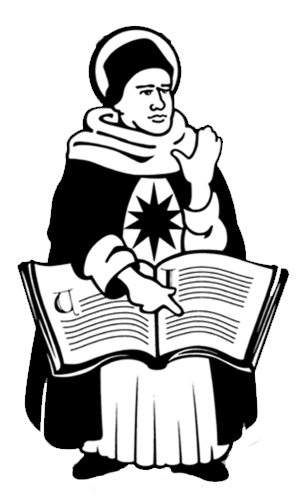STUDY MATERIALS: Two Critical Moments in Catholic History
Rev. Marvin O'Connell
Terms of Use. Catholic Thinkers media is copyrighted material. However, we have made it free with the expectation that it will be shared and used by many. If you share what you see here, please acknowledge your source, and send people our way to find more. You or your organization may not benefit financially from use of our media without written consent. Please continue reading for full terms of use, and contact us with questions or requests: info@catholicthinkers.org
Lesson 1: Introduction - Jewish and Roman Context
Review Questions
What are the three elements of the definition of history given in Lecture One?
Name some possible sources used by the historian.
How is history generally divided chronologically? What time span does each division include?
When history is divided topically, what are some of the possible divisions of history?
Are there any other common ways of dividing history?
Identify and explain "It is pleasing to the Holy Spirit and to us that this decisioin be made."
Is the writing of history an art or a science? Explain.
Lesson 2: Apostolic Succession - First Persecution
Review Questions
How did the apostolic character of the Church make its survival possible after the twelve apostles had died?
Define apostolic succession. What does it have to do with the bishops of the ancient world? Of the Renaissance? Of the modern world?
What does the Latin word "traditio" mean?
When Peter died, what happened to his authority as Bishop of Rome and head of the Church?
Describe two sources dating from around the turn of the first century that provide evidence of the authority of the Bishop of Rome over the whole Church.
What does the word "pagan" mean? How did it come to be associated with non-Christians?
Did Christians oppose the government of Rome and rebel against it? Why did the Romans persecute them?
Lesson 3: Persecutions - Councils of Nicaea & Chalcedon
Review Questions
How did the pagan religions of the ancient world differ from Judaism and Christianity?
Describe the nature of Roman toleration towards various religions. Why did it not extend to Christianity?
Did the number of Christians decline because of the Roman persecutions?
Identify and explain the words: "In this sign you will conquer." What sign? Who conquered? What implications did his triumph have for Christians?
Who was Arius and what did he teach? What was the Council of Nicaea (and when)? What did the Council say about Arianism?
Define Pelagianism.
Lesson 4: Luther and the Reformation
Review Questions
What were some of the abuses in the Catholic Church at the time of the Reformation?
What does the invention of the printing press have to do with the availability of historical sources for the study of the Reformation?
What religious order did Martin Luther join? How did his father react?
What is the Catholic teaching concerning justification? How did Luther's teaching differ from this traditional doctrine?
What is fiduciary faith? Explain.
Did Luther believe that justification meant an internal change whereby the soul becomes pure and pleasing to God? Explain his belief about the effect of justification on the state of a person's soul.
What are indulgences? Why did Luther object to their being bought and sold? Did the Catholic Church defend the practice of selling indulgences?
When Luther nailed the 95 theses to the church door, did he intend to found a new religion? Explain.
Lesson 5: Tudor Dynasty and Reformation in England
Review Questions
What is the central Protestant belief?
What did Luther come to believe about the teaching authority of the Church, about Catholic tradition, about apostolic succession, about the primacy of Peter and the authority of the Pope?
What does "Sola Scriptura" mean? Have all Protestants, because of their reliance on the Bible, come to believe exactly the same things?
How did the Reformation in England differ from that on the continent?
Lesson 6: The Counter-Reformation - Council of Trent
Review Question
How did the Catholic Church respond to the Reformation?
Many scholars find the term "Counter-Reformation" less than satisfactory. What is wrong with it?
What were some positive characteristics of the Catholic response to the Reformation?
Why did it take so long to convene the Council of Trent?
What did the Council of Trent conclude about good works? Did the bishops ultimately agree with Luther's teaching of justification by faith alone?
What did the Council of Trent conclude about the Lutheran and Calvinist idea of the total depravity of the human soul?
What is sanctifying grace? How does the Catholic teaching about sanctifying grace compare with the Protestant ideas of justification?
Study materials © 2021 International Catholic University

